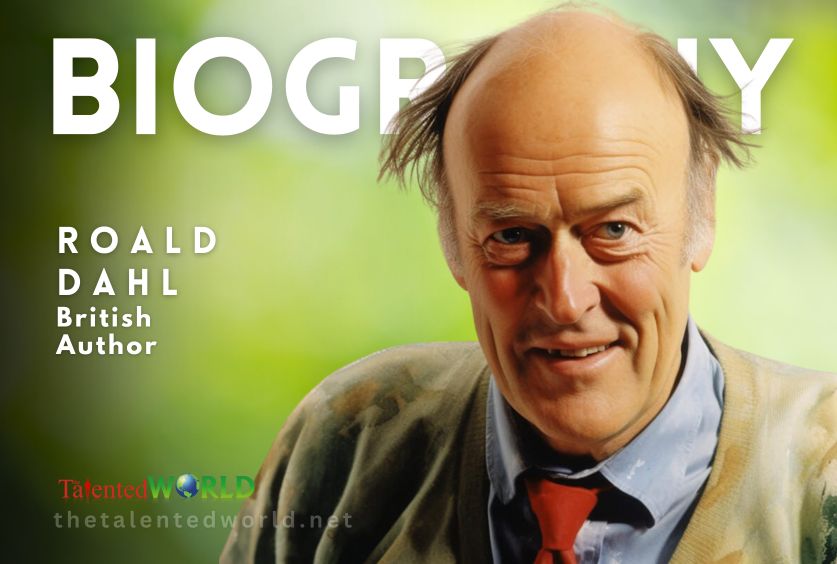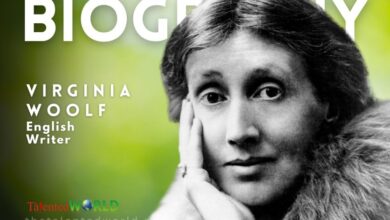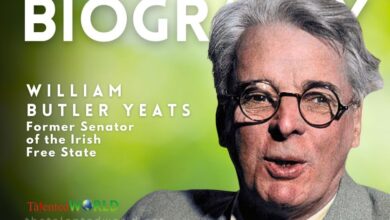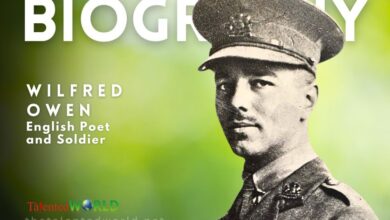
Quick Facts
| Category | Details |
|---|---|
| Full Name | Roald Dahl |
| Birth Date | September 13, 1916 |
| Death Date | November 23, 1990 |
| Age at Death | 74 |
| Birth Place | Cardiff, Wales |
| Death Place | Oxford, England |
| Resting Place | Church of St Peter and St Paul, Great Missenden, England |
| Occupation | Novelist, Poet, Screenwriter |
| Period | 1942–1990 |
| Genre | Children’s literature, Short stories |
| Spouses | Patricia Neal (m. 1953; div. 1983), Felicity Crosland (m. 1983) |
| Children | Olivia, Tessa, Theo, Ophelia, Lucy |
| Relatives | Sophie Dahl (granddaughter), Phoebe Dahl (granddaughter), Nicholas Logsdail (nephew) |
| Allegiance | United Kingdom |
| Service/branch | Royal Air Force |
| Years of Service | 1939–1946 |
| Rank | Squadron Leader |
| Unit | No. 80 Squadron RAF |
| Battles/wars | Second World War, Battle of Greece, Syria-Lebanon Campaign |
| Notable Works (Children) | James and the Giant Peach, Charlie and the Chocolate Factory, Matilda, The Witches, The BFG, Fantastic Mr Fox, The Twits, George’s Marvellous Medicine, Danny, the Champion of the World |
| Notable Works (Adults) | Tales of the Unexpected, The Wonderful Story of Henry Sugar and Six More |
| Literary Awards | World Fantasy Award for Life Achievement (1983), British Book Awards’ Children’s Author of the Year (1990) |
| Literary Style | Unsentimental, macabre, darkly comic, unexpected endings |
| Sales | Over 300 million copies worldwide |
| Recognition | “One of the greatest storytellers for children of the 20th century”, 16th on The Times’ “The 50 Greatest British Writers Since 1945” (2008), Forbes’ top-earning dead celebrity (2021) |
Roald Dahl Books
| Title | Year |
|---|---|
| Charlie and the Chocolate Factory | 1964 |
| Matilda | 1988 |
| The BFG | 1982 |
| James and the Giant Peach | 1961 |
| The Witches | 1983 |
| Fantastic Mr. Fox | 1970 |
| The Twits | 1980 |
| Charlie and the Great Glass Elevator | 1972 |
| Boy: Tales of Childhood | 1984 |
| The Wonderful Story of Henry Sugar and Six More | 1977 |
| Danny, the Champion of the World | 1975 |
| George’s Marvellous Medicine | 1981 |
| The Magic Finger | 1966 |
| The Collected Short Stories of Roald Dahl | 1991 |
| The Enormous Crocodile | 1978 |
| Revolting Rhymes | 1982 |
| Going Solo | 1986 |
| Esio Trot | 1990 |
| The Giraffe and the Pelly and Me | 1985 |
| Billy and the Minpins | 1991 |
| The Best of Roald Dahl | 1978 |
| Roald Dahl’s Book of Ghost Stories | 1983 |
| Kiss Kiss | 1960 |
| Boy, Tales of Childhood | 1988 |
| Someone Like You | 1953 |
| Dirty Beasts | 1983 |
| Over to You: Ten Stories of Flyers and Flying | 1946 |
| The Vicar of Nibbleswicke | 1991 |
| Tales of the Unexpected | 1979 |
| My Uncle Oswald | 1979 |
| The Roald Dahl Audio CD Collection | 1980 |
| The Gremlins | 1943 |
| Lamb to the Slaughter | 1953 |
| The Great Automatic Grammatizator | 1982 |
| The Landlady | 1959 |
| The Roald Dahl Treasury | 1997 |
| Skin and Other Stories | 2000 |
| More Tales of the Unexpected | 1980 |
| Switch Bitch | 1974 |
| Rhyme Stew | 1989 |
| The Mildenhall Treasure | 1946 |
| The Roald Dahl Omnibus | 1986 |
| Roald Dahl’s Revolting Recipes | 1994 |
| Twenty-Nine Kisses from Roald Dahl | 1969 |
| A Roald Dahl Selection | 1980 |
| Roald Dahl Collection: 16 Story Collection | – |
| Poison | 1950 |
| The Hitch-Hiker | 1977 |
| The Umbrella Man | 2013 |
| Skin | – |
| The Ratcatcher | – |
Roald Dahl Movies
| Title | Year |
|---|---|
| Willy Wonka & the Chocolate Factory | 1971 |
| Charlie and the Chocolate Factory | 2005 |
| The Witches | 2020 |
| Wonka | 2023 |
| Matilda | 1996 |
| Matilda the Musical | 2022 |
| The BFG | 2016 |
| The Wonderful Story of Henry Sugar | 2023 |
| Fantastic Mr. Fox | 2009 |
| James and the Giant Peach | 1996 |
| Roald Dahl’s Esio Trot | 2015 |
| Revolting Rhymes | 2016 |
| Chitty Chitty Bang Bang | 1968 |
| You Only Live Twice | 1967 |
| Tom and Jerry: Willy Wonka and the Chocolate Factory | 2017 |
| Danny, the Champion of the World | 1989 |
| Vertinnen | 1973 |
| The Twits | 2025 |
| The Wonderful Story of Henry Sugar and Three More | 2024 |
| What Have I Done To Deserve This? | 1984 |
| Revolting Rhymes Part Two | 2016 |
| The Night Digger | 1971 |
| Revolting Rhymes Part One | 2016 |
| Breaking Point | 1989 |
| Roald Dahl’s Revolting Rule Book | 2007 |
| Great Writers: Roald Dahl | 2001 |
| Fru Biksby og skinnkåpen | – |
| Roald Dahl: The Making of Modern Children’s Literature | 2008 |
| Inaudito | 1999 |
| Dirty Beasts | 1990 |
| Veien opp til himmels | 1977 |
| Ruskiga rim – sv.tal | – |
| Es war einmal… nach Roald Dahl: Teil 2 | – |
| Death, Where is Thy Sting-a-ling-ling? | – |
| There’s Something About… Dahl | 2007 |
| Maku | 1967 |
| The Taste | – |





